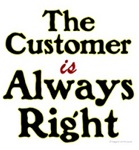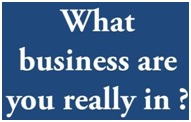|
 |
|
 |
|
|
||
Theodore (Ted) Levitt, The Marketing Imagination (1983)
American Harvard Business School professor (pictured right), world authority on marketing and creator of the term globalization.
See also... Theodore (Ted) Levitt in the Management Gurus section.
Book summary
A collection of Levitt’s best articles... They are largely from the Harvard Business Review. They contain key insights into how to achieve business success through:
Marketing and the Corporate Purpose Levitt says: “The purpose of a business is to create and keep a customer”. To do this and make a profit you must sell products that people want. Profit shouldn’t be the business purpose because it:
“If no greater purpose can be discerned, business cannot morally justify its existence”, Levitt comments about
profit. Corporate strategy must always be:
The Globalization of Markets Technology has created “global markets for globally standardized products” leading to:
But globalization doesn’t mean disregarding local or national differences.
Any product can be differentiated by providing customers certain benefits:
So products must be seen as “providing customer creating value satisfactions” which have four different parts (making up the “total product concept”,pictured right below):
1. Generic product (the basic product e.g. steel for a steel producer). 2. Expected product The customer’s “minimal expectations”, including the generic product.
3. Augmented product Giving a customer “what he thinks he needs or has become accustomed to expect”.
4. Potential product Possible ways of attracting and keeping customers.
Relationship management Customer relationships are like a marriage and require:
“A company’s most precious asset is its relationships with its customers”, says Levitt.
The marketing imagination This is the foundation of organizational purpose and successful marketing, because imaginative
marketing is required to find out:
Don’t confuse:
Marketing myopia Don’t define your business too narrowly because this restricts your:
Examples of a broad business definition
A company must think of itself as:
Success is never guaranteed and all products are threatened by the “shadow of obsolescence”.
Key quote on customers and products People don’t buy things but buy solutions to problems.
Key quote on business success The organization must learn to think of itself not as producing goods or services but as buying customers as doing the things that make people want to do business with it.
Key quote on selling and customers The sale merely consummates the courtship. Then the marriage begins. How good the marriage is depends on how well the relationship is managed by the seller.
Key quotes on objectives and vision Good work in pursuit of wrong purposes is more damaging than bad work in pursuit of right purposes. The purpose of a business is to create and keep a customer.
Key quote on finance and accounting A company’s most precious asset is its relationships with its customers.
Key quote on buyer behaviour Expectations are what people buy, not things.
Key quote on change Nothing drives progress like the imagination. |
|
|
||
|
|
||
| Copyright © wisdomtowin.com 2025 All Rights Reserved | ||
|






 Differentiation -
Differentiation -




